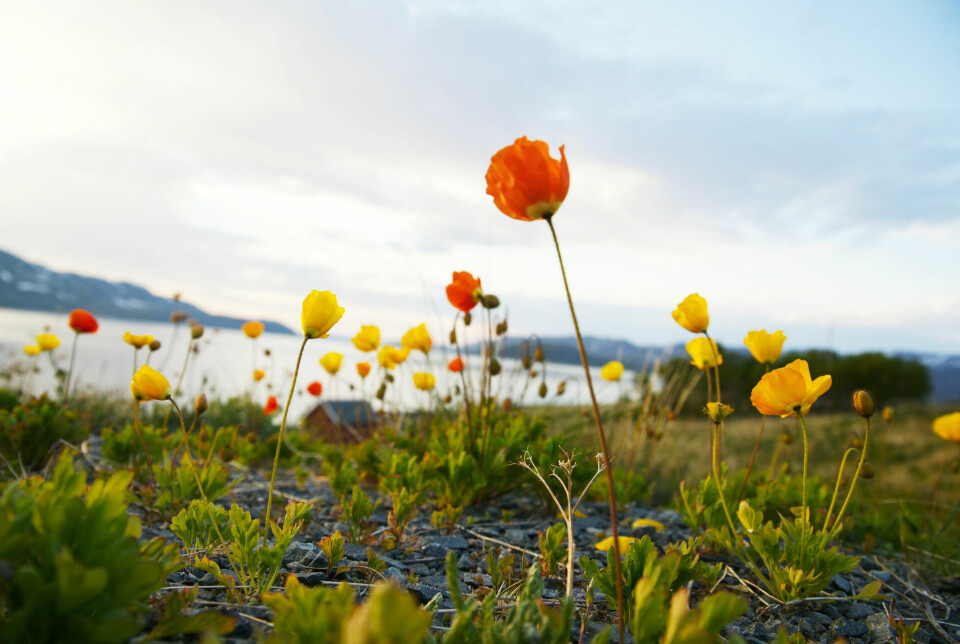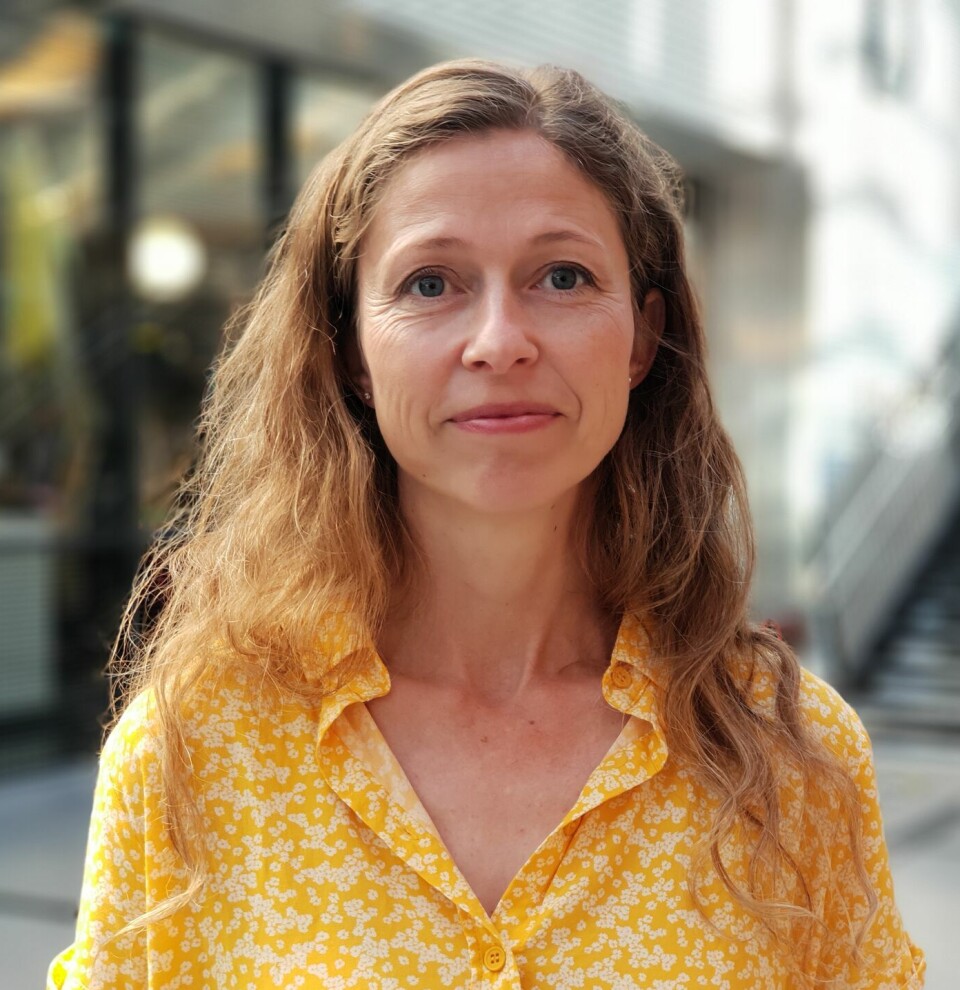THIS CONTENT IS BROUGHT TO YOU BY THE University of Agder - read more
"Hope for the future can be about nature as much as jobs"
When jobs are pitted against nature conservation, local communities can become divided. But some arguments struggle to be heard.

What happens when a village facing population decline has to choose between its fjord and new jobs?
This is what Hildegunn Mellesmo Aslaksen has studied in Kvalsund in the Finnmark region. There, discussions about mining waste in Repparfjord have lasted 20 years.
She finds that the divisions can become so deep that people stop greeting each other.
“People who've fought hard against the mine say they're no longer invited to gatherings. They feel abandoned in a village that almost no longer wants them. Others avoid talking about the issue to steer clear of conflict and disagreement, even though it affects them,” says Aslaksen.
She spent four years studying the conflict surrounding the Nussir mine in Kvalsund, as part of her doctoral work at the University of Agder.
150 jobs or a clean fjord
Kvalsund has lost half of its residents since the 1970s. Many want to bring life and activity back to the local community.
The mining company promises 150 jobs for the village. But they are also permitted to dump 30 million tonnes of waste into Repparfjord. The mine also impacts Sámi grazing areas for reindeer.

Such issues place the local population in a dilemma where they must decide what will create a good future for the village. Because what is most important – fishing in the fjord? Sámi reindeer herding? Copper for wind turbines and electric cars? Preventing depopulation, or having enough money in the municipal budget to maintain schools and nursing homes?
“One of the people I spoke to told me that he wants his son to have a job in the village when he grows up. The nursing home needs renovating. People long for the days when the village was full of life,” says Aslaksen.
But not everyone is willing to sacrifice the fjord. Some fear the fish will no longer be safe to eat. Others worry there will be no fish left.
“The fjord is already struggling. Are we going to destroy the life that is left there? those opposing the mine ask. For them, quality of life and hope for the future are closely tied to nature. The mining project becomes a threat not just to the environment, but also to valuable relationships and ways of living,” says Aslaksen.
Feelings are not given space
Aslaksen found, perhaps unsurprisingly, that people feel strongly about where they live. But these emotions are not reflected in the newspapers.
“Public discussions focus on facts and figures. There's no room for being fond of fishing or hiking. It's seen as insignificant,” she says.
She uses the term 'ecological grief' to describe the despair many feel. They worry they will lose something they love. But they rarely voice these concerns.
“In such cases, so-called rational arguments dominate the discussions. Meaningful relationships, unease, and doubts are suppressed. This means that important aspects of the conflict between jobs and nature considerations are not expressed,” she says.
Sámi conflict
The issue has also sparked painful discussions about what constitutes Sámi culture and who can identify as Sámi.
The mayor of Kvalsund, who calls himself a coastal Sámi, supports the mine even though it impacts reindeer herding. He has been harshly criticised for ‘pulling the Sámi identity out of a hat’ to defend the project, explains Aslaksen.
“The policy of Norwegianisation has made this topic very sensitive. The discussion over who gets to speak for the Sámi is bitter,” says Aslaksen.
While mining supporters talk about jobs for the next 20-30 years, reindeer herders think many generations ahead. If they lose their grazing area now, it is gone forever.
“But local reindeer owners' views were barely visible in the local newspaper while discussions were ongoing. Their perspectives were not presented, allowing misconceptions and distrust to spread in the village,” says the researcher.
Different views on development
Aslaksen believes we need to rethink what development means.
“There's a deeply ingrained logic that says new jobs lead to growth and development. That new jobs are fundamentally good. But is that true? Will Kvalsund become a better place to live with the mine? Will the place improve if the population increases? We aren't having that discussion,” she says.
She points out that wellbeing and development are about more than jobs. For some, having a healthy fjord is just as important.
“Hope for the future can be about nature as much as jobs. Both are important,” she says.
Affects all of Norway
Similar conflicts exist across the country. More and more natural areas are being lost to industry and new jobs.
Aslaksen believes local politicians are in a tough spot. All of a sudden, a big company is offering jobs and money that the municipality can use to renovate schools and nursing homes.
“Everyone is enthusiastic. It's hard to be the one who says wait a minute. It's easy to feel a sense of urgency,” she says.
She calls for more honest conversations about what we want for our local communities.
“We must have the courage to talk about what we care about. Not just hide behind facts and figures,” she says.
Reference:
Aslaksen, H.M. The Jobs-Environment Dilemma: Fights Over Work and Nature in an Arctic Community, Doctoral dissertation at the University of Agder, 2025.

This content is paid for and presented by the University of Agder
This content is created by the University of Agder's communication staff, who use this platform to communicate science and share results from research with the public. The University of Agder is one of more than 80 owners of ScienceNorway.no. Read more here.
More content from the University of Agder:
-
Fear being rejected: Half pay for gender-affirming surgery themselves
-
Study: "Young people take Paracetamol and Ibuprofen for anxiety, depression, and physical pain"
-
Research paved the way for better maths courses for multicultural student teachers
-
The law protects the students. What about the teachers?
-
This researcher has helped more economics students pass their maths exams
-
There are many cases of fathers and sons both reaching elite level in football. Why is that?




































